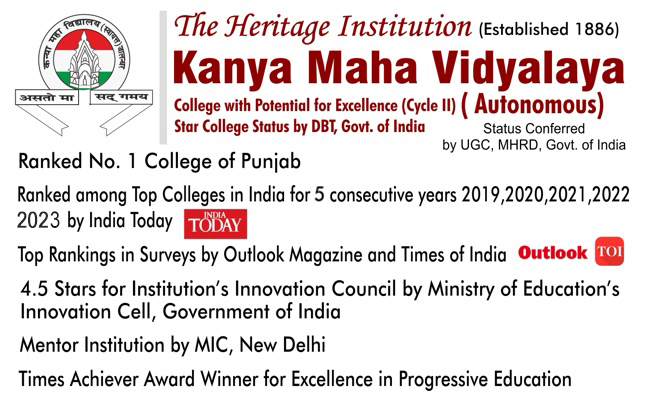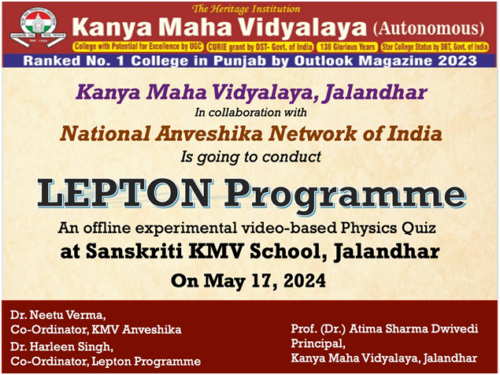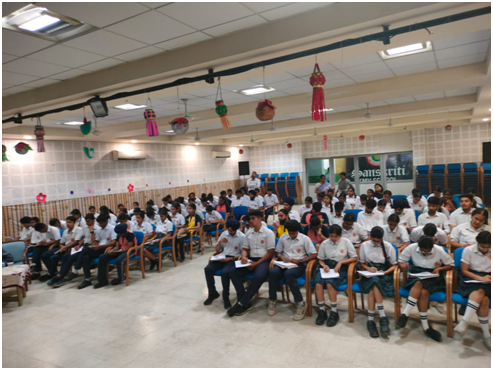Reception Desk : 0181-2296605, 2296606
For Admission related queries : 7009969253,9814406986
Email Id : kmvoffice1886@gmail.com,
kmvjalandhar@yahoo.com
- Only College under GNDU to be bestowed with FIST & CURIE grant by DST- Govt. of India
- Star College by DBT- Govt. of India
- Designated College with Potential for Excellence
- Accredited ‘A’ by UGC-NAAC
- Recognised as a Center of Excellence by RASCI, Government of India
- Best College in Punjab as per the Surveys
- Kaushal Kendra by UGC, MHRD, Govt. of India and first College under GNDU to have been granted Kaushal Kendra
May 17, 2024
KMV Physics Department always gives a platform to students to enhance their metaskills by doing practical based learning. LEPTON programme organized by the department is one such example. It stands for Learning Physics through nature. It is designed as a unique platform where participants are challenged with questions and problems presented through videos of physics experiments. The event aimed to access not only the theoretical knowledge of the participants but also their ability to analyse and interpret experimental data. This event was organised by National Anveshika Network of India (NANI) in association with Shiksha Sopan, under the leadership of Padam Shri Prof. H.C. Verma with the help of its 30 Anveshika centres all over India. Top performers in LEPTON are eligible for directly participating in the online preliminary round of NAEST 24 as per the LEPTON norms. NAEST is an annual competition which assesses and nurtures keen observational skills, analytical skills, and experimental skills of an Indian student in physics. Kanya Maha Vidyalaya being the first and only anveshika centre of Punjab, got the chance to conduct this event at Sanskriti KMV School where 100 students of Sanskriti KMV School participated in this offline quiz conducted on May 017, 2024. The questions were presented to the participants through pre-recorded experimental videos, which showcased various phenomena and scenarios. Participants were required to analyze the videos, make observations, and solve the related problems within a stipulated time frame. The questions were carefully crafted to challenge the participants’ understanding of fundamental principles and their ability to apply them in real-world situations. Professor (Dr.) Atima Sharma Dwivedi, Principal Kanya Maha Vidyalaya, Jalandhar appreciated the contribution of the students and congratulated the faculty of the Sciences. Dr. Dwivedi said that an understanding of research principles and a science and technologically literate community are essential for investment in new and technologically high value added services, and therefore critical to innovation and wealth creation.










